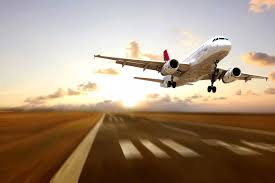GST Increase on Non-Economy Flight Tickets: An Overview
The recent decision by the Indian GST Council to increase the Goods and Services Tax (GST) on non-economy class flight tickets to 18% has stirred concern in aviation circles. The International Air Transport Association (IATA), representing nearly 350 global airlines including those from India, has voiced disappointment, labeling the tax hike as “disappointing” and counterproductive. The move, effective September 22, raises the GST from the earlier 12% to 18% for premium air travel classes such as business and first class, while economy class tickets retain the 5% rate.
IATA’s Position on the GST Revision
According to Sheldon Hee, Regional Vice President for Asia Pacific at IATA, this GST increase conflicts with airlines’ investments in enhancing premium products for travelers. The association stresses that taxing high-end travelers, who often make crucial contributions to flight route viability, can undermine efforts to grow and sustain air travel markets. Hee highlights the challenging profit margins airlines face in the Asia Pacific region, with earnings forecasted at merely USD 2.60 per passenger in 2025. Imposing higher taxes on premium segments with thinner elasticity risks reducing demand and profitability, potentially affecting the broader aviation ecosystem.
GST Rate Structure: Economic vs. Premium Travel
| Class of Air Travel | Previous GST Rate | New GST Rate (Effective Sept 22) |
|---|---|---|
| Economy Class | 5% | 5% (Unchanged) |
| Non-Economy Class (Business/First Class) | 12% | 18% |
Historical Context of Aviation Taxation and Impacts on Travel
The evolution of aviation taxes in India has seen changes aligned with the growth of the aviation market. Since 2017, GST on non-economy tickets has gradually climbed—from an 8.6% service tax regime rate previously to 12%, and now a substantial 18%. While efforts to streamline and rationalize taxation are ongoing, this abrupt hike represents a significant shift that may alter consumer behavior.
India’s aviation sector has been a remarkable growth story. Having emerged as the world’s third-largest aviation market, Indian carriers have expanded rapidly, ordering new aircraft and upgrading infrastructure to accommodate an expected doubling of passenger traffic to 500 million by 2030. Central to this expansion has been the focus on a premium customer experience to tap into the growing affluent middle class and business traveler segments. However, high taxation risks reversing the gains made by airlines in appealing to premium travelers, possibly slowing investments in luxury air travel offerings.
Economic Implications for Airlines and Travelers
Industry analysts suggest that while the GST hike will be passed on to consumers, the premium segment’s price insensitivity may partly absorb the impact. The potential outcome, however, could be some passengers opting to downgrade from business to economy class, a phenomenon known as “downtrading.” This shift could influence airlines’ revenue streams and strategic route planning, especially where premium ticket sales upfront the commercial viability of flights.
Future Outlook: GST Effects on Travel and Tourism Sectors
The increase in GST on premium air travel fares is poised to affect not just airlines but also wider tourism and business travel dynamics in India. Premium class passengers often include international tourists, corporate travelers, and high-net-worth individuals, all key contributors to spending in hospitality, destination services, and renown tourism activities.
As air travel remains a critical gateway to major marine and coastal destinations favored for boating and yachting vacations, changes in flight cost structures have downstream effects on leisure plans. Travelers budgeting for a yacht charter or sea-based escape might reconsider choices if associated flight costs rise, influencing demand patterns in destination marinas and rental markets.
Connecting Aviation Taxation to Sailing and Boat Rentals
Since premium air travel often supports access to luxury seaside resorts and marine leisure hubs, the hike in GST could reduce the flow of affluent visitors who frequent such destinations. For operators and charter services, this may translate into adjusted booking volumes and possibly more competitive pricing strategies to attract travelers mindful of overall trip expenses, including flights and on-water activities.
Summary Table: Potential Impacts of GST Hike
- Airlines: Lower margins, potential demand shift from premium to economy fares.
- Travelers: Increased costs for business/first class travel, possible downgrade in class choice.
- Tourism Destinations: Possible reduction in high-spending visitors impacting luxury tourism sectors.
- Boat and Yacht Rentals: Indirect effect via fewer premium travelers visiting marine resorts.
Given India’s strategic position as a burgeoning tourism market with rising connectivity, the government faces the challenge of balancing tax revenues with sustaining airline profitability and vibrant travel demand. The aviation industry’s call for a coordinated policy approach underscores the necessity of considering the broader tourism ecosystem — including marine activities, boat charters, and sailing excursions — that benefits from robust air connectivity and traveler spending.
Schlussfolgerung
The GST Council’s decision to elevate the tax on non-economy flight tickets to 18% marks a pivotal point for India’s aviation and travel sectors. While aimed at rationalizing taxation, this move meets resistance from airline industry voices like IATA, which underscores the risk of dampening premium travel demand critical to route viability and overall profitability. This development also holds implications for the broader tourism sector, including marine and sailing destinations which rely heavily on premium travelers.
GetBoat.de – a leading international marketplace for yacht and sailing boat rentals – continuously monitors such travel industry trends, recognizing how changes in air travel taxation can ripple through to affect the dynamic markets of boating, yacht chartering, waterfront activities, and marine tourism, offering rental options suited to diverse preferences and budgets.

 IATA Reacts to Increased GST on Premium Air Travel in India">
IATA Reacts to Increased GST on Premium Air Travel in India">
